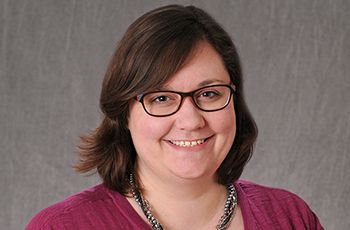
Researchers at the George Washington University (GW) School of Medicine and Health Sciences (SMHS) led by Abigail Polter, PhD, assistant professor of pharmacology and physiology, received a five-year, $2.2 million grant for a study on chronic stress from the National Institutes of Health. The project will investigate the changes that occur in the ventral tegmental area (VTA) of the brain, where dopamine neurons are located, during chronic stress.
Chronic stress is a common contributor to illnesses like depression and anxiety disorders. GABAergic neurons – those that produce gamma-Aminobutyric acid – make up 35% of neurons in the VTA. They are critical regulators of dopamine neurons and are robustly activated by acute stress. Previous research has observed what happens as a result of stress, but little is understood regarding what happens during stress.
“We currently don’t know what happens to the reward circuitry during chronic stress,” said Polter. “Understanding those changes is important for furthering our understanding of how stress can have effects like loss of motivation.”
Polter believes that chronic stress leads to persistent hyperactivity of VTA GABA neurons and this facilitates the emergence of maladaptive behavioral responses. Through the study, she expects to find that under stress, the GABA neurons become more active and that activity is solidified by changes in synaptic plasticity.
“We hope that this work can ultimately contribute to the search for novel treatments for depression or even prophylactic treatments one could take if they were undergoing a stressful event,” Polter said. “Something like that could be used during a stressful occurrence to reduce the risk of later developing depression.”




